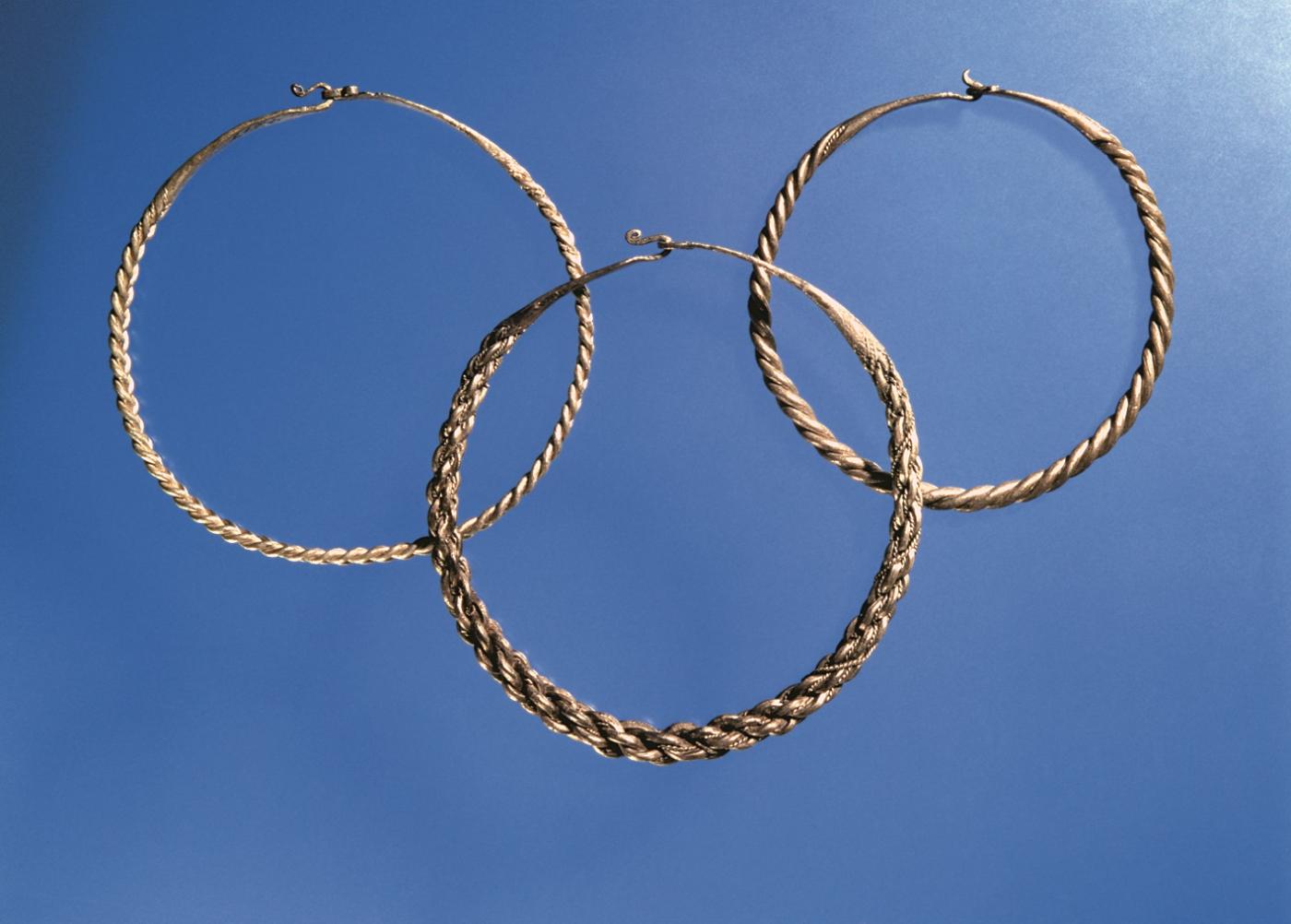One day in 1941, when the farmer at Høvik was busy with his spring ploughing, he suddenly had 4 neck rings, fastened together, on his harrow. The rings are made of twisted silver rods, and between each twist there are thin double-twisted silver threads. The neck rings were fastened by a hook lock. Their size varies from 11.8 to 14.8 cm in diameter. What would be the intention of putting these valuable silver items in the ground?
During Viking times silver was the common form of payment, often shaped as twisted or plaited arm rings or neck rings. These were used as jewellery, but was in reality a fortune in precious metal. During times of strife or uncertainty the owner tried to hide his fortune. This silver treasure has originally been hidden in a bog between two stony outcrops, not far from a road, where the owner certainly intended to return. For 1,000 years they lay buried, before again seeing the light of day.
